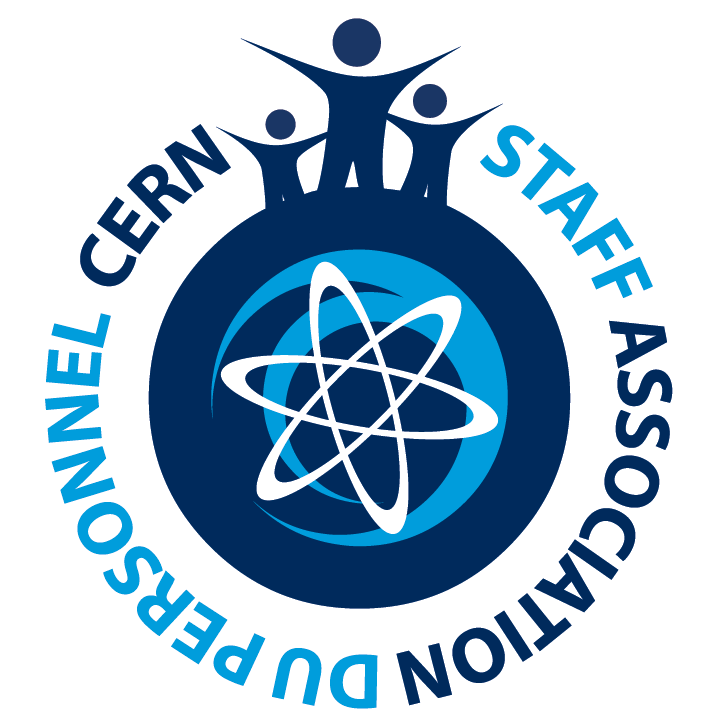The Mutual Aid Fund

Beginnings and early years
In 1956 (CERN/FC/1034/Rev.) the Finance Committee and the Council agreed that a sum of 15kCHF (or about 70kCHF in today’s prices) should be included in the annual budget of the Organization, to enable the Director-General (DG) to grant at their discretion assistance to members of the personnel in any cases of extraordinary and unforeseen financial hardship arising from any cause.
Over time, the number of cases of hardship increased, and the resources at the Director General’s disposal stopped being adequate to deal with all the cases deserving attention.
In 1968, after discussions in the Standing Concertation Committee (SCC), it was proposed to create a Benevolent Fund designed to offer financial support to employees in times of need. The proposal for this Fund was rooted in a desire to provide a safety net for members of personnel, particularly expatriates who could not rely on their home country’s services during emergencies.
The Benevolent Fund was established under a model of joint management, with resources contributed equally by both CERN and the Staff Association totally 40kCHF, equivalent to about 135kCHF in today’s prices. The Mutual Aid Fund (MAF), as we know it, was created.
Eligibility for benefits extends to all members of the CERN personnel, reinforcing the Organization’s attention to the well-being of all members of personnel. The creation of the Benevolent Fund marked a pivotal moment in enhancing the social security framework at CERN, providing a vital safety net and demonstrating a deep commitment to supporting members of personnel.
The Fund was designed to be flexible, allowing it to respond to a wide range of financial emergencies on a case-by-case basis. This flexibility has been a key feature of the Fund throughout its history.
Evolution and role
From its inception, the MAF was conceived as an independent entity within CERN, operating separately from other financial or administrative functions to ensure confidentiality and a rapid response to urgent needs and allow the DG to not tend directly to these matters.
Over the years, the MAF has evolved to better meet the diverse needs of CERN members of personnel as a last resort solution. This has included expanding the types of financial assistance available. The Fund’s resources are supported through regular contributions from the Staff Association and CERN Management. These resources are continuously adapted to reflect the evolution of social security coverage of those connected to the Organization. The MAF board carefully manages these resources to ensure effective and sustainable financial support.
Significant changes have been made over the years to ensure greater transparency, fairness and efficiency in the administration of the Fund.
The rules governing the MAF have been reviewed and updated to ensure they remain relevant to the needs of the personnel and in line with CERN’s overall policies and legal framework. These updates have been necessary to address changing conditions and the evolving needs of CERN personnel.
Most recently, in late 2023, a Working Group was established, comprising representatives from the MAF, the Staff Association, CERN's Management, and the Legal Service, to review and propose updates to the Fund’s rules and governance structure. This review was requested by The MAF and the Management in view to clarify and further improve the MAF’s activity.
The new rules were approved by the MAF Commission and endorsed by the Standing Concertation Committee by written procedure in September 2024.
The new MAF structure is as follows:
- 4 members appointed by the SCC, selected from among employed members of personnel.
- 1 member appointed by the ACCU (CERN Users Advisory Committee) from among associate members of personnel category “user”.
- 1 member appointed by the GAC-EPA (“Groupement des anciens du CERN”) from among former CERN members of the personnel who are beneficiaries of the Pension Fund.
Once the appointments are finalised, the new composition will be published.
How do I appeal to the Mutual Aid Fund?
Applying for aid: To request aid, individuals contact the Fund directly or the Social Affairs Service. Information about their financial situation and the specific circumstances that led to their request must be provided to build a case file. It is encouraged to seek assistance from the Social Affairs Service, who can provide professional guidance and help prepare the required documents. If the Social Affairs Service exhausts other means of assistance, the MAF board will check the applicant’s eligibility, study the case file, and take a decision accordingly.
Confidentiality: The emphasis on confidentiality ensures that applicants are safe and their condition is respected when seeking assistance from the Mutual Aid Fund: their personal data is protected, communication is discreet, and the review process is confidential.
Independence: The MAF draws from all quarters of the CERN community and operates independently to ensure impartiality, fairness, and credibility. Independence allows for objective decision-making, avoids external influence, and guarantees fair treatment.
Recent developments: The latest updates of the MAF regulations focused on improving its effectiveness and transparency. This included reviewing the composition of the board and their appointment process, decision-making processes, conflict-of-interest policies, data protection measures, and more.
Concertation and approvals: Any changes to the rules or governance structure of the MAF require concertation and agreement among various stakeholders at CERN, including the Staff Association and Management bodies. These changes are often presented and discussed at meetings such as the Standing Concertation Committee. The MAF board must agree to any changes before they are approved by the SCC.
Conclusion
With more than five decades of activity, the Mutual Aid Fund remain an important resource for all CERN personnel and their families, providing crucial assistance when other recourse is not available. Its activities reflect CERN’s commitment to the well-being of its community and the principle of mutual aid among its members.
